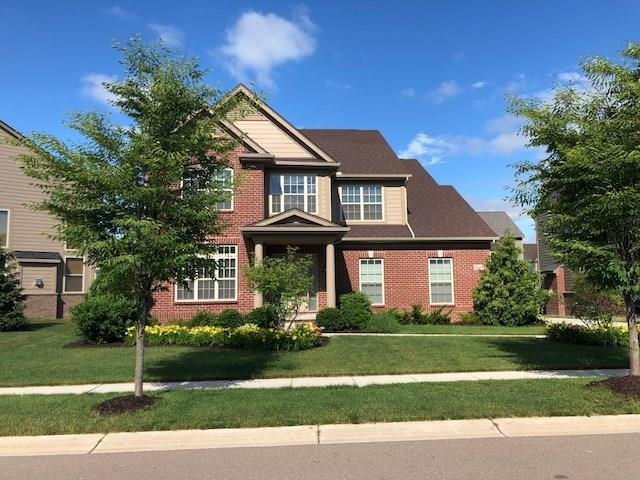
When you’re buying or selling a home, it can be difficult to get closing costs explained in a way you understand easily. From knowing whether your purchase is subject to an escrow deposit to knowing who pays the appraisal fee, it can be confusing. Closing costs – or the fees associated with the purchase of a property – are paid at closing, when the property changes hands. Some of the most common closing costs are explained here for both buyers and sellers in Metro Detroit Michigan. Keep in Mind these are the most common closing costs and often times there are additional costs associated with the closing.
APPLICATION FEE
This is a fee that covers the cost for the lender to process your application for a mortgage. Some lenders collect this fee upfront, but many wait until closing to collect it. You should be told upfront how much your lender charges as an application fee.
Before you submit a mortgage application, ask your lender what this fee covers, and get these closing costs explained. It can include items such as a credit score, but it also can cover things such as a property appraisal. Knowing just what the application fee covers can help you better anticipate other potential closing costs.
APPRAISAL
When you purchase a home, many lenders require an appraisal by a professional. This appraisal is used to determine the fair market value of the home and puts it up against properties of similar size and in a similar location to yours.
Most often, the buyer pays the appraisal fee which is typically charged after your home inspection is completed and you are moving forward with the home purchase.
ATTORNEY FEE
This pays for an attorney to review all your closing documents, and the attorney can work on behalf of either the buyer or the lender. Having an attorney look over the closing documents isn’t required in all states, but it’s often a good idea to have a third party look over the documents so you know that everything included in them is legal and typical.
CLOSING FEE
A closing fee is paid to the title company, escrow company, or attorney for conducting the closing. This person acts as a neutral third party in the transfer of the home, and some states require that a real estate attorney be present even if you’re using a title or escrow company.
You can get these closing costs explained by your lender or the person managing the closing.
COURIER FEE
This covers the cost of transporting documents so that a loan transaction can be completed as quickly as possible.
HOME INSPECTION
Home inspections often are required by lenders, but many sellers also elect to get their own inspections. This fee can be negotiated between the buyer and seller to determine who pays it. In most cases, the buyer obtains their own private inspection and is responsible for the cost for the inspection. This is paid prior to closing, typically after the buyer receives a signed accepted contract to purchase. Make sure you check your purchase agreement to see how many days you have to obtain your home inspection.
ORIGINATION FEE
This fee covers the lender’s administrative costs, typically adding up to about 1 percent of the total loan. Some mortgages come without origination fees, so look around if you want to find a way to save this fee.
Underwriting Fee
This also goes to your lender, covering the cost of researching whether or not to approve you for the loan.
Loan Discount Points
“Points” are fees paid directly to the lender at closing in exchange for a reduced interest rate. This is also called “buying down the rate,” which can lower your monthly mortgage payments. One point is one percent of your loan amount.
PRIVATE MORTGAGE INSURANCE (PMI)
If you’re making a down payment of less than 20% of the purchase price, you likely will be required by the lender to pay PMI. Some lenders require that you pay the first month’s PMI at closing.
Prepaid Interest
Most lenders will ask you to prepay any interest that will accrue between closing and the date of your first mortgage payment.
Homeowner’s Insurance
This insures your home for things like structure/dwelling, contents and liability to name a few and covers possible damages to your home. Always check your policy to see what coverages you are getting. Are you covered if your sump pump fails and basement floods? Sewer/Drain flooding? Make sure you are properly covered. Your first year’s insurance is often paid at closing.
Property Tax
Typically, lenders will want any taxes due within 60 days of purchase by the loan servicer to be paid at closing. There are also prorated taxes, Sellers will take responsibility for the property taxes up until the day the property is officially sold. The buyer takes on the property taxes from the day the purchase is final. Since taxes are paid in advance, the buyer will often pay a “pro-rated” amount of taxes to the seller at closing from the date of closing to the next tax bill (Michigan – July Summer Tax, December Winter Tax).
Escrow Deposit for Property Taxes, Home Insurance & Mortgage Insurance
The buyer is typically required to setup an escrow if they are putting down less than 20% of the homes purchase price. Often you are asked to put down two months of property tax, home insurance and mortgage insurance payments at closing, although this will depend on which month you are closing in. Sometimes the lender can require up to 12-14 months of reserves for the property taxes and home insurance.
VA Funding Fee
If you have a VA loan, you may be required to pay a VA funding fee at closing (or you can roll this fee into the cost of the loan). This is a percentage of the loan amount that the VA assesses to fund the VA home loan program, some borrowers are exempt from this fee. The percentage depends on your type of service and the amount of your down payment.
RECORDING FEES
When a home changes hands, that change must be recorded by a local recording office. This recording often comes with a fee.
TITLE SEARCH
This fee is paid to the title company, who does a thorough search on the property’s records to make sure that the sale will be legal and there are no liens or claims to the property on the title.
Lender’s Policy Title Insurance
This is insurance to satisfy the lender that you own the home and the lender’s mortgage is a valid lien, and it protects the lender if there is a problem with the title. Similar to the title search, but always a separate line item. This cost is paid by the buyer at closing.
Transfer Tax
This is the tax paid when the title passes from seller to buyer. Typically paid by the seller, but can be negotiated.
Homeowners “HOA” Association Transfer Fees
The Seller will pay for this transfer which will show that the dues are paid current, what the dues are, a copy of the association financial statements, minutes and notices. The buyer should review these documents during the inspection & Due Diligence period to determine if the Association has enough reserves in place to avert future special assessments, check to see if there are special assessments, legal action, or any other items that might be of concern. Also included will be Association by-laws and rules and regulations. Checking by-laws for any restrictions that might be of concern to you. For example, this could be a pet restriction in condominiums, or not being allowed to install a fence in on your property in your subdivision.

